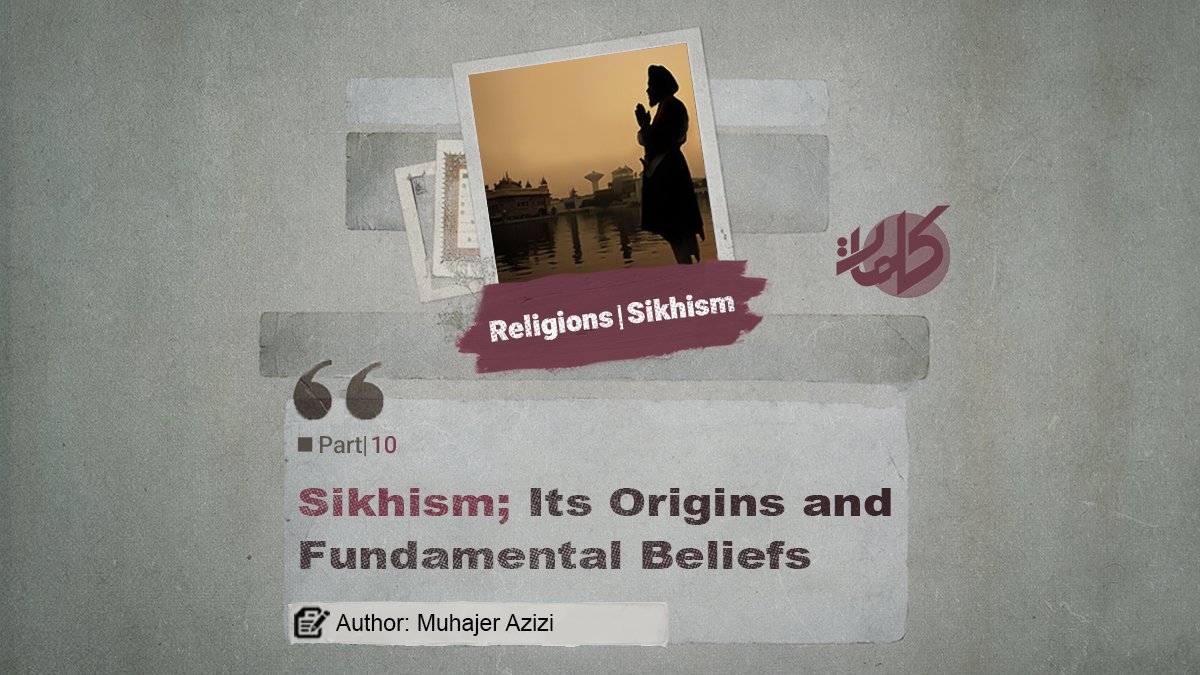Author: Muhajer Azizi
Sikhism: Its Origins and Fundamental Beliefs (Part 10)
2. The Dasam Granth
The Dasam Granth is the second sacred book in the Sikh religion. Although its status is below that of the Guru Granth Sahib, it is still considered among the holy texts of the Sikhs. However, its use is limited and occasional, and it holds a significantly lower position compared to the Adi Granth. This book contains poems and hymns attributed to the tenth Guru, Guru Gobind Singh, as well as verses by several other poets and authors.
It is said that this collection was compiled 26 years after the death of Guru Gobind Singh, in the year 1734 CE, by Bhai Mani Singh. The book spans 1,428 pages and contains over 2,000 hymns, divided into twelve sections. It is composed in various languages such as Punjabi, Sanskrit, and Hindi and is written in the Gurmukhi script. [1]
Worship of Sikhs
Like followers of other religions, Sikhs have unique and distinctive rituals and forms of worship. The following outlines their main devotional practices:
1. Daily Reading from the Sacred Text
Each day, Sikhs read specific portions from their holy book, the Guru Granth Sahib. One of the most important sections is the hymn known as Japji, which includes daily prayers and devotional recitations. [2]
2. Morning Prayers and Supplications
Sikhs begin their day with ablution or bathing, followed by the recitation of special prayers and invocations to start their day in remembrance of God.
3. Congregational Singing and Worship (Kirtan)
Through singing devotional hymns—called Kirtan—in their temples (Gurdwaras), they believe they purify their souls and draw closer to God.
4. Repetition of God’s Name (Nam)
One of the key acts of worship is the repetition of God’s name, believed to cleanse sins and keep evil away from the soul. [3]
As stated in the Adi Granth:
“The highest duty of all is to repeat the name of the One God.”
“His holy name is my support.”
“Repeat that sacred name. Listen to it, and engage with it.”
“Turn your attention toward God. Inhale and exhale with His name on your lips until your soul is absorbed in divine light.” [4]
5. Meditation and Mental Focus (Spiritual Reflection)
By focusing their minds and contemplating the presence of God under the guidance of a spiritual teacher (Guru), Sikhs strive to unite with the divine truth.
6. Worship in the Temple
The Gurdwara (Sikh temple) or similar structures hold great importance in Sikh community life. Worship in the Gurdwara is primarily based on recitation from the Guru Granth Sahib. When a Sikh enters this sacred space for the first time, they approach the holy scripture, bow down, and offer a gift in reverence. [5]
7. Recitation of the Ardas
At specific times, all attendees join in the recitation of the Ardas, the Sikh communal prayer. This unique form of supplication seeks divine blessings and reflects on the historical sufferings and victories of the Sikh community. The Ardas was developed in the eighteenth century and has undergone only minor changes since. It concludes with a reference to the Guru Granth Sahib as the physical embodiment of the Guru and with the well-known phrase: “The pure-hearted shall rule” (Raj Karega Khalsa). [6]
Continues…
Previous Part/ Next Part
[1]. Fayyaz Qarapi, Religions of India, p. 471.
[2]. Nader Al-Sahil, The Sikhs: Presentation and Critique, p. 274.
[3]. Ibid., p. 274.
[4]. Robert I. Hume, translated by: Abd al-Rahim Gawaahi, The Living Religions of the World, p. 169.
[5]. Muhammad Al-Turaihi, The Sikhs: Their Beliefs and History, p. 151.
[6]. Ibid., pp. 151-152.



